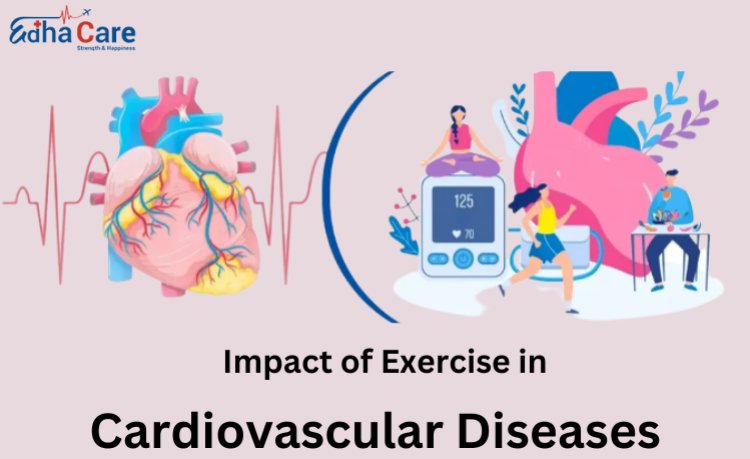10 Essential Steps for Heart Disease Prevention: Maintaining Cardiovascular Wellness
Preventing heart disease is crucial for maintaining good heart health and reducing the risk of heart attacks, strokes, and other cardiovascular complications.
Share this Post to earn Money ( Upto ₹100 per 1000 Views )
Preventing heart disease is crucial for maintaining good heart health and reducing the risk of heart attacks, strokes, and other cardiovascular complications. Here are some essential steps and lifestyle changes that can help prevent heart disease:
Checkout exercise guidlines for cardiovascular diseases
Adopt a Heart-Healthy Diet: Eat a balanced diet that includes fruits, vegetables, whole grains, lean proteins, and healthy fats. Reduce the intake of saturated and trans fats, sodium, and added sugars. Choose heart-healthy cooking oils like olive oil and limit processed and fried foods.
Maintain a Healthy Weight: Excess weight can strain the heart and increase the risk of heart disease. Aim to achieve and maintain a healthy body weight through a combination of a nutritious diet and regular physical activity.

Exercise Regularly: Engage in moderate-intensity aerobic exercise, such as brisk walking, jogging, swimming, or cycling, for at least 150 minutes per week. Additionally, include strength training exercises twice a week to improve overall cardiovascular health.
Don't Smoke or Use Tobacco Products: Smoking and exposure to secondhand smoke increase the risk of heart disease. If you smoke, seek help to quit, and avoid exposure to smoke whenever possible.
Limit Alcohol Consumption: Excessive alcohol consumption can raise blood pressure and contribute to heart disease. If you drink, do so in moderation (up to one drink per day for women and up to two drinks per day for men).
Get Information of India's Top Hospitals for Cardiac Surgery
Manage Stress: Chronic stress can contribute to heart disease. Practice stress-reducing techniques like meditation, deep breathing, yoga, or spending time doing activities you enjoy.
Get Enough Sleep: Aim for 7-9 hours of quality sleep each night. Poor sleep can lead to high blood pressure and other heart-related issues.
Monitor Blood Pressure and Cholesterol: Regularly check your blood pressure and cholesterol levels. High blood pressure and cholesterol are significant risk factors for heart disease, but they can be managed through lifestyle changes and, if necessary, medication.
Control Diabetes: If you have diabetes, work with your healthcare provider to manage your blood sugar levels effectively. Uncontrolled diabetes can damage blood vessels and increase the risk of heart disease.
Regular Health Check-ups: Schedule regular check-ups with your doctor to assess your heart health and discuss any concerns or risk factors.
Remember that prevention is key, and adopting a heart-healthy lifestyle can significantly reduce the risk of developing heart disease.
It's never too early or too late to start taking care of your heart and making positive changes for your overall well-being. Always consult with a healthcare professional for personalized advice and guidance on preventing heart disease.
















